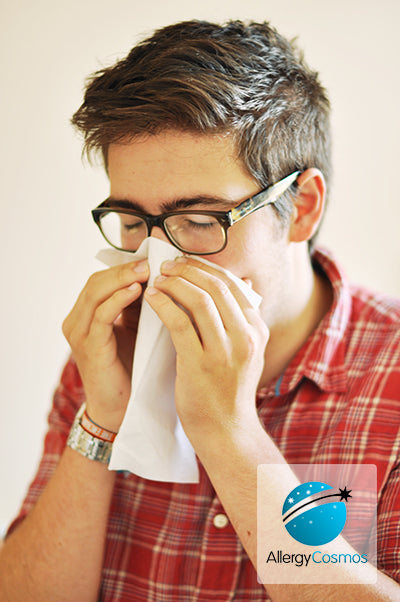The Parliamentary Office of Science and Technology (POST) held a briefing in London recently, to follow up on its 2006-7 report on the growing problem of both airborne and food-related allergy in the UK. Dr Adam Fox, Consultant Paediatric Allergist, Guy's and St Thomas' Hospitals, London, noted that allergy has now reached epidemic proportions, although the steep rise seen in recent years has at least begun to plateau. However, the UK still leads the world in allergy rates – and no-one knows quite why the UK is not coping with allergy demand. Five million people in the UK have asthma and over 1,100 die from the condition each year.
"Forty per cent of children in the UK have an allergy," Dr Fox said. "Therefore, in a typical classroom, three to four children will have eczema, four will have asthma and four will have rhinitis. Children tell me how embarrassing it is to have rhinitis – they're known as 'the kid with the snotty nose'." We also know from research that rhinitis causes more than just embarrassment – the condition itself, and the medication used to treat it have a serious negative impact on exam results.
So what resources are in place to ensure that the NHS deals adequately with an allergy? Provision is fragmented – ear, nose and throat or respiratory specialists may get involved, rather than an adult or child seeing an allergy specialist. For there are just 27 adult and 20 paediatric allergy consultants in England and Wales. Only two per cent of eligible children gets pollen immunotherapy, which could actually cure their hay fever and help their school performance. Worryingly, it seems that there is no planned expansion of NHS allergy services, observed Dr Fox.
Dr Matthew Doyle, a GP based in Cambridge, followed this by presenting the allergy problem from the primary care side. There are 20 million people with the allergic disease of some kind in the UK. "This is a considerable workload, which usually comes to a GP who is not trained in allergic disease. Three-quarters of GPs do not feel they have the necessary skills to deal with allergy." He pointed out that few GPs have the facilities to do the testing which is needed for effective allergen avoidance and treatment of symptoms. Overall, care tends to be fragmented, with a lack of specialist services. Not surprisingly, patients tend to turn to 'other avenues' to get help. "An enormous amount of testing is available online and the majority of it is at least slightly questionable", said Dr Doyle.
One solution would be to train up more doctors as a GP with a Special Interest (GPwSI) in allergy. This accreditation allows the GP to provide additional services, in addition to their general role, in primary care. At present, there are only around 10 GPwSIs in allergy in England. "We need more GP education because allergy is split between different disciplines in the current curriculum. Postgraduate training is possible, but takes time, motivation and funding." This last point is particularly important, for all medical disciplines are now competing for funding from the new clinical commissioning groups and it takes extra effort to get the money to set up a new service. Another possible solution would be to look at the Quality and Outcomes Framework (QOF), which is the system on which GPs get paid for the services they offer. Currently there is nothing on QOF for allergy, except in asthma, so this could be expanded to meet the demand for allergy services." All these approaches would help to improve the patient journey through allergy", concluded Dr Doyle.




